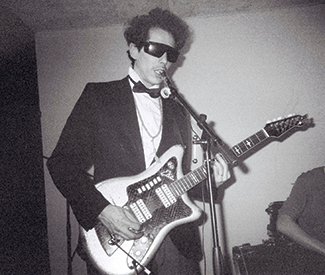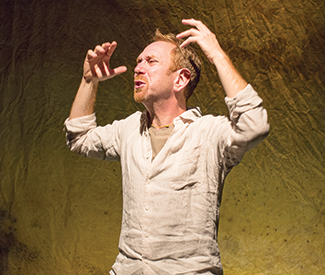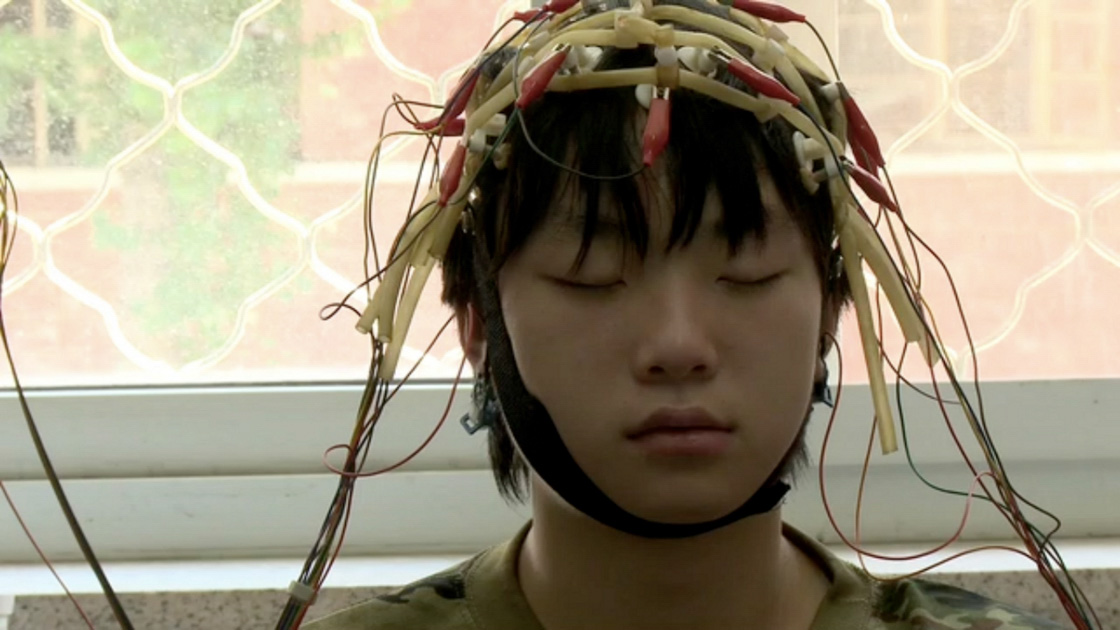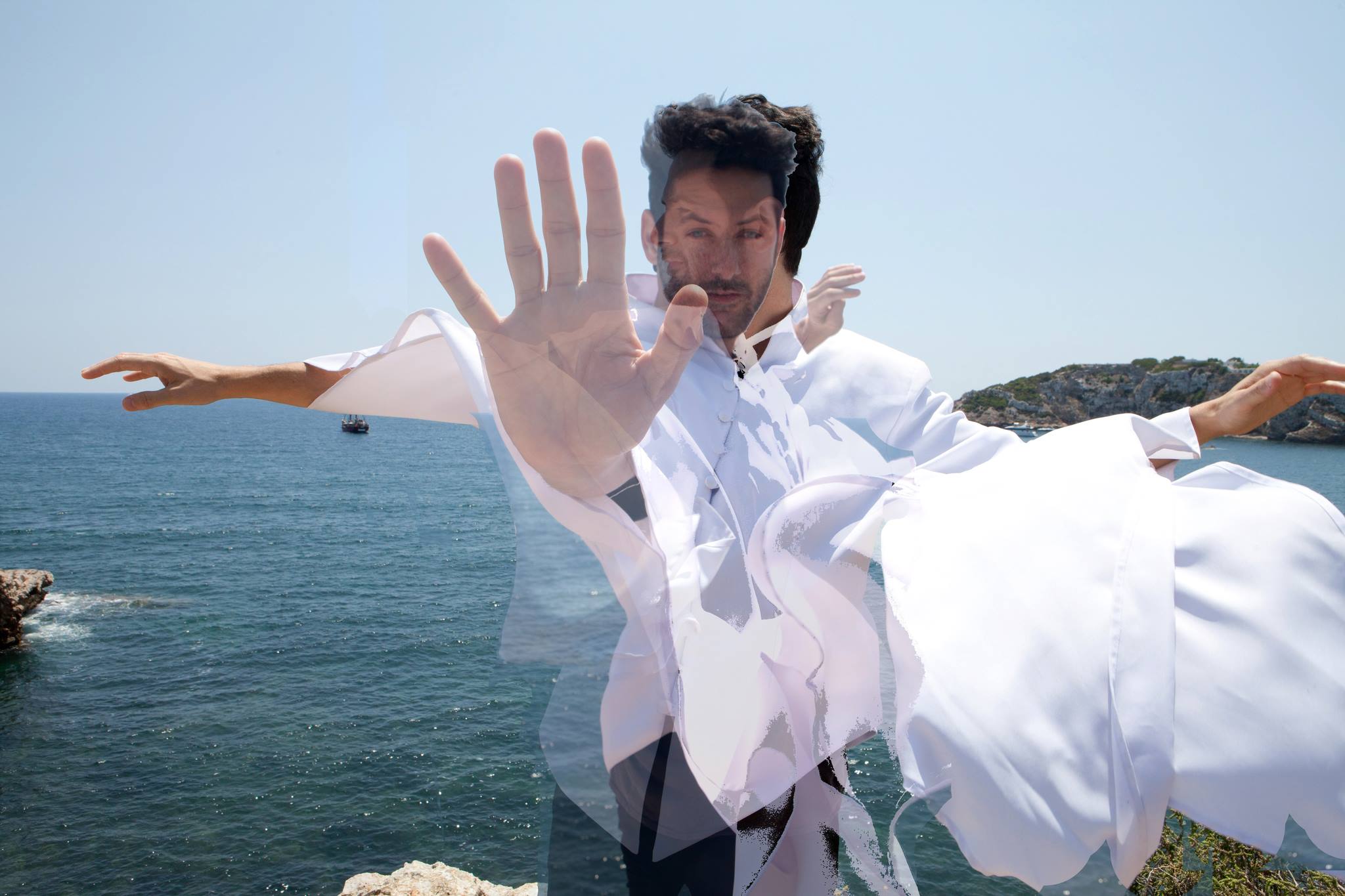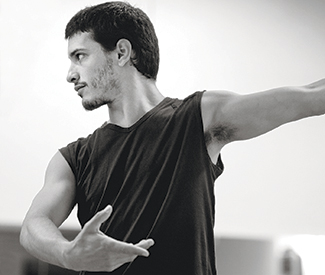WEDNESDAY 11
ROCK
Bottom of the Hill: 1233 17th St., San Francisco. The Bruises, Lovers, Upstairs Downstairs, 9 p.m., $10.
Cafe Du Nord: 2170 Market, San Francisco. Tommy & The High Pilots, The Lower 48, Will Weston, 8:30 p.m., $8.
The Chapel: 777 Valencia St., San Francisco. Lee Ranaldo & The Dust, Bill Orcutt & Jacob Felix Heule, 9 p.m., $15-$17.
DNA Lounge: 375 11th St., San Francisco. Fates Warning, Artizan, Bay Rum, Field of Stones, 7:30 p.m., $20-$25.
El Rio: 3158 Mission, San Francisco. Hyper Buzz, Heart of the Whale, Not Sure. Not Yet, 8 p.m., $10.
The Independent: 628 Divisadero, San Francisco. Jagwar Ma, Fascinator, 8 p.m., $15.
The Knockout: 3223 Mission, San Francisco. “Disorder,” w/ Screature, CIVC, Circuit Slave, DJ Nickie Tilsner, 10 p.m., $5.
DANCE
The Cafe: 2369 Market, San Francisco. “Sticky Wednesdays,” w/ DJ Mark Andrus, 8 p.m., free.
Cat Club: 1190 Folsom, San Francisco. “Bondage A Go Go,” w/ DJs Damon, Tomas Diablo, & guests, 9:30 p.m., $5-$10.
Clift Hotel, Redwood Room: 495 Geary, San Francisco. “Sessions 004,” w/ Kiwi Time, plus DJs Richard Habib, Jamal Targa, Marija Dunn, Seven, Amber Reyngoudt, and Max Gardner, 6 p.m., free.
Club X: 715 Harrison, San Francisco. “Electro Pop Rocks,” 18+ dance night with the Disco Fries, Aston Shuffle, Harris Pilton, Sychosis, Sonny Daze, Chaos, Slo Mo, Budzak, 9 p.m., $10-$20.
Edinburgh Castle: 950 Geary, San Francisco. “1964,” w/ DJ Matt B & guests, Second and Fourth Wednesday of every month, 10 p.m., $2.
Elbo Room: 647 Valencia, San Francisco. Powwoww, Witowmaker, Light Echo, Phntm Club, Popgang DJs, 9 p.m., $5.
The EndUp: 401 Sixth St., San Francisco. “Tainted Techno Trance,” 10 p.m.
F8: 1192 Folsom St., San Francisco. “Housepitality,” w/ Jozif, Pattern Drama, Sharon Buck, Johnnie Walker, 9 p.m., $5-$10.
Harlot: 46 Minna, San Francisco. “Qoöl,” 5 p.m.
Infusion Lounge: 124 Ellis, San Francisco. “Indulgence,” 10 p.m.
Lookout: 3600 16th St., San Francisco. “What?,” w/ resident DJ Tisdale and guests, 7 p.m., free.
Madrone Art Bar: 500 Divisadero, San Francisco. “Rock the Spot,” 9 p.m., free.
MatrixFillmore: 3138 Fillmore, San Francisco. “Reload,” w/ DJ Big Bad Bruce, 10 p.m., free.
Q Bar: 456 Castro, San Francisco. “Booty Call,” w/ Juanita More, Joshua J, guests, 9 p.m., $3.
HIP-HOP
Skylark Bar: 3089 16th St., San Francisco. “Mixtape Wednesday,” w/ resident DJs Strategy, Junot, Herb Digs, & guests, 9 p.m., $5.
Slate Bar: 2925 16th St., San Francisco. “Special Blend,” w/ resident DJs LazyBoy & Mr. Murdock, 9 p.m., free.
ACOUSTIC
Bazaar Cafe: 5927 California, San Francisco. Paige Clem, Fiver Brown, Ben Shaw, 7 p.m.
Cafe Divine: 1600 Stockton, San Francisco. Craig Ventresco & Meredith Axelrod, 7 p.m., free.
Club Deluxe: 1511 Haight, San Francisco. Happy Hour Bluegrass, 6:30 p.m., free.
Hotel Utah: 500 Fourth St., San Francisco. Ryan Montbleau, Witchdream Mansion, 8 p.m., $12-$15.
Johnny Foley’s Irish House: 243 O’Farrell St., San Francisco. Terry Savastano, Every other Wednesday, 9 p.m., free.
Plough & Stars: 116 Clement, San Francisco. Gann Brewer, 9 p.m.
JAZZ
Amnesia: 853 Valencia, San Francisco. Gaucho, Eric Garland’s Jazz Session, The Amnesiacs, 7 p.m., free.
Burritt Room: 417 Stockton St., San Francisco. Terry Disley’s Rocking Jazz Trio, 6 p.m., free.
Jazz Bistro at Les Joulins: 44 Ellis, San Francisco. Charles Unger Experience, 7:30 p.m., free.
Le Colonial: 20 Cosmo, San Francisco. The Cosmo Alleycats featuring Ms. Emily Wade Adams, 7 p.m., free.
Savanna Jazz Club: 2937 Mission, San Francisco. “Cat’s Corner,” 9 p.m., $10.
Top of the Mark: One Nob Hill, 999 California, San Francisco. Ricardo Scales, Wednesdays, 6:30-11:30 p.m., $5.
Yoshi’s San Francisco: 1330 Fillmore, San Francisco. Tuck & Patti, 8 p.m., $22.
Zingari: 501 Post, San Francisco. Sherri Roberts, 7:30 p.m., free.
INTERNATIONAL
Bissap Baobab: 3372 19th St., San Francisco. Timba Dance Party, w/ DJ WaltDigz, 10 p.m., $5.
Cafe Cocomo: 650 Indiana, San Francisco. “Bachatalicious,” w/ DJs Good Sho & Rodney, 7 p.m., $5-$10.
Rickshaw Stop: 155 Fell, San Francisco. Diana Arbenina & The Night Snipers, DJ Ze’ev, 8 p.m., $50.
BLUES
Biscuits and Blues: 401 Mason, San Francisco. Kim Wilson All Stars, 7:30 & 9:30 p.m., $30.
Boom Boom Room: 1601 Fillmore, San Francisco. Dr. Mojo, 9:30 p.m., free.
The Saloon: 1232 Grant, San Francisco. Little Jonny & The Giants, 9:30 p.m.
EXPERIMENTAL
Meridian Gallery: 535 Powell, San Francisco. Cheryl Leonard: New Natural Sounds, 7:30 p.m., $8-$10.
FUNK
Vertigo: 1160 Polk, San Francisco. “Full Tilt Boogie,” w/ KUSF-in-Exile DJs, Second Wednesday of every month, 8 p.m.-1:30 a.m., free.
SOUL
The Royal Cuckoo: 3202 Mission, San Francisco. Freddie Hughes & Chris Burns, 7:30 p.m., free.
THURSDAY 12
ROCK
Bottom of the Hill: 1233 17th St., San Francisco. City Tribe, Sea Lioness, Travis Hayes, Snow Angel, 8:30 p.m., $8.
DNA Lounge: 375 11th St., San Francisco. Sixth Annual Silicon Valley Rocks, Benefit for Music in Schools Today featuring live music by South Hero, Blues Deluxe, The Funkery, Peter Chung Band, Regime, nSLASHa, Open Source Band, Coverflow, and Rainbow Party., 7 p.m., $25-$65.
The Independent: 628 Divisadero, San Francisco. moe., Dec. 12-14, 9 p.m., $30.
The Knockout: 3223 Mission, San Francisco. Cocktails, Blood Sister, Happy Diving, 9 p.m., $5.
Milk Bar: 1840 Haight, San Francisco. Split Screens, The Dandelion War, Heavy Color, Jared Padovani, 8:30 p.m., $5.
DANCE
1015 Folsom: 1015 Folsom St., San Francisco. RJD2, Om Unit, Sweatson Klank, DJ Dials, Mophono, Ernie Fresh. Mr. Vos, 10 p.m., $15 advance.
Abbey Tavern: 4100 Geary, San Francisco. DJ Schrobi-Girl, 10 p.m., free.
Audio Discotech: 316 11th St., San Francisco. “Phonic,” w/ Borgeous, 9:30 p.m., $10 advance.
Aunt Charlie’s Lounge: 133 Turk, San Francisco. “Tubesteak Connection,” w/ DJ Bus Station John, 9 p.m., $5-$7.
The Cafe: 2369 Market, San Francisco. “¡Pan Dulce!,” 9 p.m., $5.
Cat Club: 1190 Folsom, San Francisco. “Throwback Thursdays,” ‘80s night with DJs Damon, Steve Washington, Dangerous Dan, and guests, 9 p.m., $6 (free before 9:30 p.m.).
The Cellar: 685 Sutter, San Francisco. “XO,” w/ DJs Astro & Rose, 10 p.m., $5.
Club X: 715 Harrison, San Francisco. “The Crib,” 9:30 p.m., $10, 18+.
Danzhaus: 1275 Connecticut, San Francisco. “Alt.Dance,” Second Thursday of every month, 7 p.m., $7, 18+.
DNA Lounge: 375 11th St., San Francisco. “8bitSF,” w/ Super Soul Bros, Vicereine, Owlbear, DJ Tracer, 8:30 p.m., $8-$11.
Elbo Room: 647 Valencia, San Francisco. “Afrolicious,” w/ DJs Pleasuremaker, Señor Oz, and live guests, 9:30 p.m., $5-$8.
Infusion Lounge: 124 Ellis, San Francisco. “I Love Thursdays,” 10 p.m., $10.
Madrone Art Bar: 500 Divisadero, San Francisco. “Night Fever,” 9 p.m., $5 after 10 p.m.
Neck of the Woods: 406 Clement St., San Francisco. Blaus, on the downstairs stage, 10 p.m. continues through Dec. 26, free with RSVP.
Q Bar: 456 Castro, San Francisco. “Throwback Thursday,” w/ DJ Jay-R, 9 p.m., free.
Raven: 1151 Folsom St., San Francisco. “1999,” w/ VJ Mark Andrus, 8 p.m., free.
Ruby Skye: 420 Mason, San Francisco. “Awakening,” w/ Ørjan Nilsen, 9 p.m., $20-$30 advance.
The Tunnel Top: 601 Bush, San Francisco. “Tunneltop,” DJs Avalon and Derek ease you into the weekend with a cool and relaxed selection of tunes spun on vinyl, 10 p.m., free.
Underground SF: 424 Haight, San Francisco. “Bubble,” 10 p.m., free.
Vessel: 85 Campton, San Francisco. “Base,” w/ Sasha, Gabriel I, Quinn Jerome, 10 p.m., $15 advance.
HIP-HOP
Eastside West: 3154 Fillmore, San Francisco. “Throwback Thursdays,” w/ DJ Madison, 9 p.m., free.
The EndUp: 401 Sixth St., San Francisco. “Cypher,” w/ resident DJ Big Von, 10 p.m., $5-$10.
John Colins: 138 Minna, San Francisco. “Party with Friends,” w/ resident DJs IllEfect, GeektotheBeat, Merrick, and Delrokz, Second Thursday of every month, 9 p.m., free.
Neck of the Woods: 406 Clement St., San Francisco. iStandard Producer Showcase: Bay Area Edition, 8 p.m., $10 advance.
Skylark Bar: 3089 16th St., San Francisco. “Peaches,” w/lady DJs DeeAndroid, Lady Fingaz, That Girl, Umami, Inkfat, and Andre, 10 p.m., free.
ACOUSTIC
Amnesia: 853 Valencia, San Francisco. Emily Bonn & The Vivants, Arann Harris & The Farm Band, Supermodal, 9 p.m.
Bazaar Cafe: 5927 California, San Francisco. Acoustic Open Mic, 7 p.m.
Brick & Mortar Music Hall: 1710 Mission, San Francisco. Jamestown Revival, Lonesome Locomotive, Keyan Keihani, 8 p.m., $9-$12.
El Rio: 3158 Mission, San Francisco. “Strung Out,” w/ Teja Gerken, Joe Gore, Eric Skye, 7 p.m.
Hotel Utah: 500 Fourth St., San Francisco. Small Town Therapy, The T Sisters, Indianna Hale, 9 p.m., $10-$20.
The Lost Church: 65 Capp St., San Francisco. The Lady Crooners, 8 p.m., $10.
Plough & Stars: 116 Clement, San Francisco. Tipsy House, 9 p.m.
JAZZ
Blush! Wine Bar: 476 Castro, San Francisco. Doug Martin’s Avatar Ensemble, 7:30 p.m., free.
Bottle Cap: 1707 Powell, San Francisco. The North Beach Sound with Ned Boynton, Jordan Samuels, and Tom Vickers, 7 p.m., free.
Cafe Claude: 7 Claude, San Francisco. Vijay Anderson Quartet, 7:30 p.m., free.
Exploratorium: Pier 15, San Francisco. Resonance: Angel City, w/ Roscoe Mitchell, James Fei, William Winant, Sarah Cahill, 7 p.m., $10-$15.
Jazz Bistro at Les Joulins: 44 Ellis, San Francisco. Clifford Lamb, Mel Butts, and Friends, Second Thursday of every month, 7:30 p.m., free.
Pier 23 Cafe: Pier 23, San Francisco. Judy Hall, 7 p.m., free.
The Royal Cuckoo: 3202 Mission, San Francisco. Charlie Siebert & Chris Siebert, 7:30 p.m., free.
Savanna Jazz Club: 2937 Mission, San Francisco. Savanna Jazz Jam with Eddy Ramirez, 7:30 p.m., $5.
SFJAZZ Center: 205 Franklin St., San Francisco. “Hotplate,” w/ Robert Stewart & Chester Thompson (playing Jimmy Smith’s Back at the Chicken Shack), 8 & 9:30 p.m., $15-$20.
Top of the Mark: One Nob Hill, 999 California, San Francisco. Stompy Jones, 7:30 p.m., $10.
Yoshi’s San Francisco: 1330 Fillmore, San Francisco. Tuck & Patti, 8 p.m., $23.
Zingari: 501 Post, San Francisco. Barbara Ochoa, 7:30 p.m., free.
INTERNATIONAL
Bissap Baobab: 3372 19th St., San Francisco. “Pa’Lante!,” w/ Juan G, El Kool Kyle, Mr. Lucky, 10 p.m., $5.
Cafe Cocomo: 650 Indiana, San Francisco. Vibrasón, El DJ X, 8 p.m., $12.
Pachamama Restaurant: 1630 Powell, San Francisco. “Jueves Flamencos,” 8 p.m., free.
Sheba Piano Lounge: 1419 Fillmore, San Francisco. Gary Flores & Descarga Caliente, 8 p.m.
Verdi Club: 2424 Mariposa, San Francisco. The Verdi Club Milonga, w/ Christy Coté, DJ Emilio Flores, guests, 9 p.m., $10-$15.
REGGAE
Make-Out Room: 3225 22nd St., San Francisco. “Festival ‘68,” w/ Revival Sound System, Second Thursday of every month, 10 p.m., free.
Pissed Off Pete’s: 4528 Mission St., San Francisco. Reggae Thursdays, w/ resident DJ Jah Yzer, 9 p.m., free.
BLUES
50 Mason Social House: 50 Mason, San Francisco. Bill Phillippe, 5:30 p.m., free.
Biscuits and Blues: 401 Mason, San Francisco. Mike Keneally, 7:30 & 9:30 p.m., $20-$24.
The Saloon: 1232 Grant, San Francisco. T-Wrex & The Primitive Rhythm, 4 p.m.; Cathy Lemons, 9:30 p.m.
COUNTRY
Atlas Cafe: 3049 20th St., San Francisco. Jinx Jones & Jessica Rose, 8 p.m., free.
The Parlor: 2801 Leavenworth, San Francisco. “Twang Honky Tonk & Country Jamboree,” w/ DJ Little Red Rodeo, 7 p.m., free.
EXPERIMENTAL
50 Mason Social House: 50 Mason, San Francisco. Tri-Cornered Tent Show, Feral Luggage, White Pee, 10 p.m., free.
The Luggage Store: 1007 Market, San Francisco. Ti Femme, Roro, Jack Hertz, 8 p.m., $6-$10.
SOUL
Cigar Bar & Grill: 850 Montgomery, San Francisco. Holiday Party with Big Blu Soul Revue, 7:30 p.m., free.
FRIDAY 13
ROCK
Bottom of the Hill: 1233 17th St., San Francisco. 20 Sided Records Holiday Party, w/ Trainwreck Riders, Tartufi, Cannons & Clouds, Couches, 9 p.m., $10.
Brick & Mortar Music Hall: 1710 Mission, San Francisco. Cool Ghouls, Santoros, The Spyrals, Unstrung, DJ Al Lover, 9 p.m., $7.
Hemlock Tavern: 1131 Polk, San Francisco. Federation X, Tweak Bird, Feral Ohms, Peace Creep, 9 p.m., $8.
Hotel Utah: 500 Fourth St., San Francisco. Rue ‘66, Handler Brothers, Consolidated Electric, 9 p.m., $8.
The Independent: 628 Divisadero, San Francisco. moe., Dec. 12-14, 9 p.m., $30.
Make-Out Room: 3225 22nd St., San Francisco. O Presidente, Pancho-san, 7:30 p.m., $8.
Milk Bar: 1840 Haight, San Francisco. Surf Bored, Lemme Adams, Mr. Kind, 8:30 p.m., $8.
Slim’s: 333 11th St., San Francisco. El Ten Eleven, Slow Magic, 9 p.m., $16.
Thee Parkside: 1600 17th St., San Francisco. Slick’s Bash #100 with Poison Idea; Attitude Adjustment; Moses; I, Madman, 9 p.m., $12.
DANCE
Amnesia: 853 Valencia, San Francisco. “Indie Slash,” w/ DJs Danny White and Rance, 10 p.m., $5.
Audio Discotech: 316 11th St., San Francisco. Juan MacLean (DJ set), Pacific Disco, Papa Lu, 9:30 p.m., $10-$15 advance.
BeatBox: 314 11th St., San Francisco. BeatBox Holiday Party with DJ Russ Rich, 9 p.m., free.
Cafe Flore: 2298 Market, San Francisco. “Kinky Beats,” w/ DJ Sergio, 10 p.m., free.
The Cafe: 2369 Market, San Francisco. “Boy Bar,” w/ DJ Matt Consola, 9 p.m., $5.
Cat Club: 1190 Folsom, San Francisco. “Dark Shadows: The Nightmare Before Christmas,” w/ DJs Daniel Skellington, Melting Girl, Joe Radio, and Skarkrow, 9:30 p.m., $7 ($3 before 10 p.m.).
The Cellar: 685 Sutter, San Francisco. “F.T.S.: For the Story,” 10 p.m.
The EndUp: 401 Sixth St., San Francisco. “Fever,” 10 p.m., free before midnight.
F8: 1192 Folsom St., San Francisco. “Trap City,” w/ Loudpvck, UltraViolet, Napsty, WolfBitch, The Whooligan, Teleport, Meikee Magnetic, Mixtress Shizaam, 10 p.m., $15.
The Grand Nightclub: 520 4th St., San Francisco. “We Rock Fridays,” 9:30 p.m.
Harlot: 46 Minna, San Francisco. “The Animal Party: Reindeer Unleashed,” w/ Traviswild & Thomas Jack, 9 p.m., $10-$20 advance.
Infusion Lounge: 124 Ellis, San Francisco. “Escape Fridays,” 10 p.m., $20.
Lone Star Saloon: 1354 Harrison, San Francisco. “Cubcake,” w/ DJ Medic, Second Friday of every month, 9 p.m.
Lookout: 3600 16th St., San Francisco. “HYSL,” 9 p.m., $3.
Manor West: 750 Harrison, San Francisco. “Fortune Fridays,” 10 p.m., free before 11 p.m. with RSVP.
MatrixFillmore: 3138 Fillmore, San Francisco. “F-Style Fridays,” w/ DJ Jared-F, 9 p.m.
Mighty: 119 Utah, San Francisco. Mighty 10-Year Anniversary, w/ Hernan Cattaneo, Naveen G, 9 p.m., $20-$30 advance.
Monarch: 101 6th St., San Francisco. “Smoke N’ Mirrors: A Winter Holiday Soirée,” w/ Crazy P, Climbers, Shiny Objects, Lisbona, Trev Campbell, 9 p.m., $10.
OMG: 43 6th St., San Francisco. “Release,” 9 p.m., free before 11 p.m.
Public Works: 161 Erie, San Francisco. “Friday the 13th, Part IV,” w/ Zebra Katz, House of LaDosha, 10 p.m., $10-$15.
Q Bar: 456 Castro, San Francisco. “Pump: Worq It Out Fridays,” w/ resident DJ Christopher B, 9 p.m., $3.
Ruby Skye: 420 Mason, San Francisco. Simon Patterson, John Beaver, 9 p.m., $20 advance.
Showdown: 10 Sixth St., San Francisco. “Electric WKND,” w/ The Certain People Crew, Second Friday of every month, 10 p.m., free.
Slide: 430 Mason, San Francisco. “E2F,” Second Friday of every month, 9 p.m.
Supperclub San Francisco: 657 Harrison, San Francisco. “F*ck It’s Free-zing,” w/ Michael Anthony, Be Smiley, Jimmy Bell, Didje Kelli, 10 p.m., free.
Temple: 540 Howard, San Francisco. The Les, DJ Enfo, DJ E-20, Mikey Tan, DJ Rufio, 10 p.m., $15.
Underground SF: 424 Haight, San Francisco. “Bionic,” 10 p.m., $5.
Wish: 1539 Folsom, San Francisco. “Bridge the Gap,” w/ resident DJ Don Kainoa, Fridays, 6-10 p.m., free.
HIP-HOP
EZ5: 682 Commercial, San Francisco. “Decompression,” Fridays, 5-9 p.m.
John Colins: 138 Minna, San Francisco. “Heartbeat,” w/ resident DJ Strategy, Second Friday of every month, 9 p.m., $5 (free before 11 p.m).
Mezzanine: 444 Jessie, San Francisco. Bone Thugs-N-Harmony, 9 p.m., $25-$45.
Slate Bar: 2925 16th St., San Francisco. “The Hustle,” w/ DJs Sake One & Sean G, Second Friday of every month, 9 p.m.
ACOUSTIC
Dolores Park Cafe: 501 Dolores, San Francisco. Secret Town, 7:30 p.m.
The Sports Basement: 610 Old Mason, San Francisco. “Breakfast with Enzo,” w/ Enzo Garcia, 10 a.m., $5.
JAZZ
Atlas Cafe: 3049 20th St., San Francisco. Tom Lander, 7:30 p.m., free.
Beach Chalet Brewery & Restaurant: 1000 Great Highway, San Francisco. Johnny Smith, 8 p.m., free.
Bird & Beckett: 653 Chenery, San Francisco. Jimmy Ryan Quintet, Second Friday of every month, 5:30 p.m., free.
Cafe Claude: 7 Claude, San Francisco. Alex Conde Trio, 7:30 p.m., free.
Jazz Bistro at Les Joulins: 44 Ellis, San Francisco. Charles Unger Experience, 7:30 p.m., free.
The Palace Hotel: 2 New Montgomery, San Francisco. The Klipptones, 8 p.m., free.
Pier 23 Cafe: Pier 23, San Francisco. Soul Sauce, 8 p.m., free.
Red Poppy Art House: 2698 Folsom, San Francisco. Rob Reich Trio, 7:30 p.m., $10-$15.
The Royal Cuckoo: 3202 Mission, San Francisco. Steve Lucky & Carmen Getit, 7:30 p.m., free.
Savanna Jazz Club: 2937 Mission, San Francisco. Jim Butler Group, 7:30 p.m., $8.
Top of the Mark: One Nob Hill, 999 California, San Francisco. Black Market Jazz Orchestra, 9 p.m., $10.
Zingari: 501 Post, San Francisco. Joyce Grant, 8 p.m., free.
INTERNATIONAL
Bissap Baobab: 3372 19th St., San Francisco. “Paris-Dakar African Mix Coupe Decale,” 10 p.m., $5.
Cafe Cocomo: 650 Indiana, San Francisco. Taste Fridays, featuring local cuisine tastings, salsa bands, dance lessons, and more, 7:30 p.m., $15 (free entry to patio).
Cliff House: 1090 Point Lobos, San Francisco. Orquesta Conquistador Quartet, 7 p.m.
Elbo Room: 647 Valencia, San Francisco. Lagos Roots, 10 p.m., $10.
The Emerald Tablet: 80 Fresno St., San Francisco. Flamenco del Oro, 8 p.m., $15 suggested donation.
Pachamama Restaurant: 1630 Powell, San Francisco. Cuban Night with Fito Reinoso, 7:30 & 9:15 p.m., $15-$18.
Rickshaw Stop: 155 Fell, San Francisco. La Gente, La Misa Negra, 8 p.m., $10-$13.
Yoshi’s San Francisco: 1330 Fillmore, San Francisco. Sheila E. Birthday Celebration, 8 & 10 p.m., $34-$39.
REGGAE
Gestalt Haus: 3159 16th St., San Francisco. “Music Like Dirt,” 7:30 p.m., free.
BLUES
Biscuits and Blues: 401 Mason, San Francisco. Elvin Bishop, 7:30 & 10 p.m., $40.
The Saloon: 1232 Grant, San Francisco. Jinx Jones & The KingTones, Second Friday of every month, 4 p.m.; T.C. Riders, 9:30 p.m.
EXPERIMENTAL
Artists’ Television Access: 992 Valencia, San Francisco. “Other States,” w/ Evan Caminiti, Danny Paul Grody, and Trevor Montgomery, plus films by Paul Clipson, 8 p.m., $6-$10.
FUNK
Boom Boom Room: 1601 Fillmore, San Francisco. Steppin’, DJ K-Os, 9:30 p.m., $10.
Make-Out Room: 3225 22nd St., San Francisco. “Loose Joints,” w/ DJs Centipede, Damon Bell, and Tom Thump, 10 p.m., $5-$10.
SOUL
Edinburgh Castle: 950 Geary, San Francisco. “Soul Crush,” w/ DJ Serious Leisure, 10 p.m., free.
The Knockout: 3223 Mission, San Francisco. “Nightbeat,” w/ DJs Primo, Lucky, and Dr. Scott, Second Friday of every month, 10 p.m., $4.
Madrone Art Bar: 500 Divisadero, San Francisco. “Yo Momma: M.O.M. Weekend Edition,” w/ DJ Gordo Cabeza, Second Friday of every month, 9 p.m., $5 (free before 10 p.m.).
SATURDAY 14
ROCK
Bottom of the Hill: 1233 17th St., San Francisco. Kitten, The Hot Toddies, Dog Party, 9:30 p.m., $15.
Connecticut Yankee: 100 Connecticut, San Francisco. Sad Bastard Book Club, Waning, Balms, 9:30 p.m., $10.
Hemlock Tavern: 1131 Polk, San Francisco. The Loyalists, Cinder Cone, Mosshead, 9:30 p.m., $6.
Hotel Utah: 500 Fourth St., San Francisco. The Comet Empire, The Suborbitals, Akale, 9 p.m., $8.
The Independent: 628 Divisadero, San Francisco. moe., Dec. 12-14, 9 p.m., $30.
The Knockout: 3223 Mission, San Francisco. The Fucking Buckaroos, Buffalo Tooth, The Parmesans, A Million Billion Dying Suns, 3 p.m., $7.
Thee Parkside: 1600 17th St., San Francisco. Pedal Revolution Benefit Show with Clamhawk Manor, Twinsect, Jamaged Goods, Joe Sikelianos, 4 p.m., $5; The Weirdos, VKTMS, The Re-Volts, DJ Aya Papaya, 9 p.m., $18.
DANCE
Amnesia: 853 Valencia, San Francisco. “2 Men Will Move You,” w/ DJs Primo & Jordan, Second Saturday of every month, 9 p.m.
Audio Discotech: 316 11th St., San Francisco. Solidisco, Chordashian, MyKill, Sunwoo, 9:30 p.m., $10 advance.
BeatBox: 314 11th St., San Francisco. “I Just Wanna F*ckin Dance: First Annual Battle of the Beats,” 10 p.m., $15-$25.
Cafe Flore: 2298 Market, San Francisco. “Bistrotheque,” w/ DJ Ken Vulsion, 8 p.m., free.
Cat Club: 1190 Folsom, San Francisco. “Club Gossip: New Order vs. Erasure,” w/ DJs Damon, Shon, Low-Life, Daniel Skellington, and Panic, 9 p.m., $5-$8 (free before 9:30 p.m.).
DNA Lounge: 375 11th St., San Francisco. “Bootie S.F.,” w/ Smash-Up Derby, A+D, DJ Dada, Myster C, Mr. Washington, Keith Kraft, more, 9 p.m., $10-$15.
S.F. Eagle: 398 12th St., San Francisco. “Sadistic Saturdays,” Second Saturday of every month, 10 p.m., free.
El Rio: 3158 Mission, San Francisco. Maxwell Powers, Date Nite, Pixel Memory, 9 p.m., $6-$12.
Elbo Room: 647 Valencia, San Francisco. “Tormenta Tropical: 6-Year Anniversary,” w/ Max Glazer, Oro11, Deejay Theory, 10 p.m., $5-$10.
The EndUp: 401 Sixth St., San Francisco. “Eclectricity,” Second Saturday of every month, 10 p.m.
The Grand Nightclub: 520 4th St., San Francisco. “Love Generation,” w/ The Fancy Cats, 10 p.m., $20.
Harlot: 46 Minna, San Francisco. “Freak ‘n’ You,” w/ Philipp Jung (of M.A.N.D.Y.), Nick Williams, Dan Sherman, 9 p.m., $10 advance.
The Hot Spot: 1414 Market, San Francisco. “Love Will Fix It,” w/ DJ Bus Station John, Second Saturday of every month, 10 p.m., $5.
Infusion Lounge: 124 Ellis, San Francisco. “One Way Ticket Saturdays,” w/ Eric D-Lux, Second Saturday of every month, 10 p.m., $20.
The Knockout: 3223 Mission, San Francisco. “Galaxy Radio,” w/ Matrixxman, Lel Ephant, Smac, Emils, PlaZa, Holly B, 9 p.m., free.
Lookout: 3600 16th St., San Francisco. “Bounce!,” 9 p.m., $3.
Madrone Art Bar: 500 Divisadero, San Francisco. “Music Video Night,” w/ DJs Satva & 4AM, Second Saturday of every month, 10 p.m., $5.
Mighty: 119 Utah, San Francisco. Gorgon City, 10 p.m., $12.50-$20.
Monarch: 101 6th St., San Francisco. “No Way Back,” w/ Mudd, Felix Dickinson, Conor, Solar, 10 p.m., $10-$20.
Neck of the Woods: 406 Clement St., San Francisco. French Horn Rebellion, Carousel, on the upstairs stage, 9 p.m., $12-$15.
OMG: 43 6th St., San Francisco. “Fixup,” Second Saturday of every month, 10 p.m., $5 (free before 11 p.m).
Rickshaw Stop: 155 Fell, San Francisco. “Cockblock: The Holiday Party,” w/ DJs Niki-C & Natalie Nuxx, 10 p.m., $10.
Slate Bar: 2925 16th St., San Francisco. “The KissGroove S.F.,” w/ DJ Vinroc & The Whooligan, Second Saturday of every month, 10 p.m., free.
The Stud: 399 Ninth St., San Francisco. “Frolic: A Celebration of Costume & Dance,” w/ resident DJ NeonBunny, Second Saturday of every month, 8 p.m., $8 ($4 in costume).
Temple: 540 Howard, San Francisco. Frenchy Le Freak, Pheeko Dubfunk, Lorentzo, 10 p.m., $20.
Wish: 1539 Folsom, San Francisco. “All Styles & Smiles,” w/ DJ Tom Thump, Second Saturday of every month, 10 p.m., free.
HIP-HOP
111 Minna Gallery: 111 Minna St., San Francisco. “Back to the ‘90s,” Second Saturday of every month, 9:30 p.m., $10.
Double Dutch: 3192 16th St., San Francisco. “Cash IV Gold,” w/ DJs Kool Karlo, Roost Uno, and Sean G, Second Saturday of every month, 10 p.m., free.
John Colins: 138 Minna, San Francisco. “Second Saturdays,” w/ resident DJ Matt Cali, Second Saturday of every month, 10 p.m., free.
Showdown: 10 Sixth St., San Francisco. “The Shit Show,” w/ resident DJ Taurus Scott, Second Saturday of every month, 10 p.m., two for $5.
Slim’s: 333 11th St., San Francisco. Jake Miller, Action Item, Air Dubai, 9 p.m., sold out.
ACOUSTIC
Amnesia: 853 Valencia, San Francisco. Small Souls, Old Pals, 7 p.m., $5-$7.
Atlas Cafe: 3049 20th St., San Francisco. Craig Ventresco & Meredith Axelrod, Saturdays, 4-6 p.m., free.
Bazaar Cafe: 5927 California, San Francisco. Jordan Singh VanderBeek, 7 p.m.
Plough & Stars: 116 Clement, San Francisco. The Shelby Foot Three, 9 p.m.
The Riptide: 3639 Taraval, San Francisco. Dark Hollow, 9:30 p.m., free.
JAZZ
Cafe Claude: 7 Claude, San Francisco. Belinda Blair, 7:30 p.m., free.
Cigar Bar & Grill: 850 Montgomery, San Francisco. Josh Jones Latin Jazz Ensemble, 8 p.m.
The Emerald Tablet: 80 Fresno St., San Francisco. Madeline Eastman & Her Trio, 8 p.m., $20 suggested donation.
Jazz Bistro at Les Joulins: 44 Ellis, San Francisco. Bill “Doc” Webster & Jazz Nostalgia, 7:30 p.m., free.
The Royal Cuckoo: 3202 Mission, San Francisco. Wil Blades & Jack Tone Riordan, 7:30 p.m., free.
San Francisco Golden Gate Rugby Club: 725 California Ave., San Francisco. S.F. Bal Fest: Treasure Island Hop, 9 a.m., $5; S.F. Bal Fest: Aloha Swing Dance, w/ Lavay Smith & Her Red Hot Skillet Lickers, 7 p.m., $15-$20 ($5 off with costume).
Savanna Jazz Club: 2937 Mission, San Francisco. David Byrd Group, 7:30 p.m., $8.
Sheba Piano Lounge: 1419 Fillmore, San Francisco. The Robert Stewart Experience, 9 p.m.
Zingari: 501 Post, San Francisco. Barbara Ochoa, 8 p.m., free.
INTERNATIONAL
1015 Folsom: 1015 Folsom St., San Francisco. “Pura,” 9 p.m., $20.
Bissap Baobab: 3372 19th St., San Francisco. Misión Flamenca, Monthly live music and dance performances., Second Saturday of every month, 7:30 p.m. “Paris-Dakar African Mix Coupe Decale,” 10 p.m., $5.
Brick & Mortar Music Hall: 1710 Mission, San Francisco. Makrú, Las Cafeteras, DJ Izzy*wise, 9 p.m., $12-$15.
Cafe Cocomo: 650 Indiana, San Francisco. Orquesta Borinquen, DJ Luis Medina, 8 p.m., $15.
Make-Out Room: 3225 22nd St., San Francisco. “El SuperRitmo,” w/ DJs Roger Mas & El Kool Kyle, 10 p.m., $5 before 11 p.m.
Milk Bar: 1840 Haight, San Francisco. Dança Makèzú’s Kizomba, Semba, and African Rhythms Mega Party, 9:30 p.m., $10.
Pachamama Restaurant: 1630 Powell, San Francisco. Peña Eddy Navia & Pachamama Band, 8 p.m., free.
Red Poppy Art House: 2698 Folsom, San Francisco. John Calloway and the New Riders of the Clave Maze, 7:30 p.m., $15-$20.
Space 550: 550 Barneveld, San Francisco. “Club Fuego,” 9:30 p.m.
Yoshi’s San Francisco: 1330 Fillmore, San Francisco. Sheila E. Birthday Celebration, 8 & 10 p.m., $39.
BLUES
Biscuits and Blues: 401 Mason, San Francisco. Maria Muldaur, 7:30 & 10 p.m., $22.
Pier 23 Cafe: Pier 23, San Francisco. Bobbie Webb, 8 p.m., free.
The Saloon: 1232 Grant, San Francisco. Dave Workman, Second Saturday of every month, 4 p.m.; Delta Wires, 9:30 p.m.
COUNTRY
The Chapel: 777 Valencia St., San Francisco. Swinging Doors, 9 p.m., free.
FUNK
Public Works: 161 Erie, San Francisco. SantaCon Funk Night, w/ DJs Gordo Cabeza, Timoteo Gigante, Malachi, Señor Oz, Pleasuremaker, Motion Potion, and Phleck, 6 p.m., $5.
SOUL
Boom Boom Room: 1601 Fillmore, San Francisco. Wicked Mercies, Kelly Rock, DJ K-Os, 9:30 p.m., $10-$15.
SUNDAY 15
ROCK
Bottom of the Hill: 1233 17th St., San Francisco. San Francisco Rock Project’s 2013 Festive Festival of Bands, 5:30 p.m., $10+.
Hemlock Tavern: 1131 Polk, San Francisco. Little Claw, Death Valley Girls, SFPD, 8:30 p.m., $6.
DANCE
The Cellar: 685 Sutter, San Francisco. “Replay Sundays,” 9 p.m., free.
The Edge: 4149 18th St., San Francisco. “’80s at 8,” w/ DJ MC2, 8 p.m.
Elbo Room: 647 Valencia, San Francisco. “Dub Mission,” w/ Timoteo Gigante, DJ Sep, J-Boogie, 9 p.m., $6 (free before 9:30 p.m.).
The EndUp: 401 Sixth St., San Francisco. “T.Dance,” 6 a.m.-6 p.m.; “Elements of House,” w/ Mozaic, David Gregory, Dan Sherman, 10 p.m.
F8: 1192 Folsom St., San Francisco. “Stamina,” w/ Bachelors of Science, Jamal, 10 p.m., free.
The Knockout: 3223 Mission, San Francisco. “Sweater Funk,” 10 p.m., free.
Lookout: 3600 16th St., San Francisco. “Jock,” Sundays, 3-8 p.m., $2.
MatrixFillmore: 3138 Fillmore, San Francisco. “Bounce,” w/ DJ Just, 10 p.m.
Mezzanine: 444 Jessie, San Francisco. Paul Kalkbrenner, Bells & Whistles, 7:30 p.m., $20-$30.
Monarch: 101 6th St., San Francisco. “Black Magic Disko,” w/ Mind Against, Brian Bejarano, Star Kommand, 9 p.m., $10-$15.
Otis: 25 Maiden, San Francisco. “What’s the Werd?,” w/ resident DJs Nick Williams, Kevin Knapp, Maxwell Dub, and guests, 9 p.m., $5 (free before 11 p.m.).
The Parlor: 2801 Leavenworth, San Francisco. DJ Marc deVasconcelos, 10 p.m., free.
Q Bar: 456 Castro, San Francisco. “Gigante,” 8 p.m., free.
Slate Bar: 2925 16th St., San Francisco. “She Said…: A Queer Affair,” Third Sunday of every month, 4 p.m., $3-$5.
The Stud: 399 Ninth St., San Francisco. “No Parking on the Dancefloor,” w/ resident DJs Dutchboy & Gehno Aviance, 11 p.m., $5.
HIP-HOP
Boom Boom Room: 1601 Fillmore, San Francisco. “Return of the Cypher,” 9:30 p.m., free.
ACOUSTIC
Bazaar Cafe: 5927 California, San Francisco. A Very Shut-Ins Xmas, 6 p.m.
Hotel Utah: 500 Fourth St., San Francisco. Her Electric Fur, El Joe of the River, Axel Mansoor, Sean Simerly, 8 p.m., $7.
The Lost Church: 65 Capp St., San Francisco. Misner & Smith, Justin Farren, 8 p.m., $10.
The Lucky Horseshoe: 453 Cortland, San Francisco. Bernal Mountain Bluegrass Jam, 4 p.m., free.
Madrone Art Bar: 500 Divisadero, San Francisco. “Spike’s Mic Night,” Sundays, 4-8 p.m., free.
Neck of the Woods: 406 Clement St., San Francisco. “iPlay,” open mic with featured weekly artists, 6:30 p.m., free.
Plough & Stars: 116 Clement, San Francisco. Seisiún with John Sherry & Kyle Thayer, 9 p.m.
St. Luke’s Episcopal Church: 1755 Clay, San Francisco. “Sunday Night Mic,” w/ Roem Baur, 5 p.m., free.
JAZZ
El Rio: 3158 Mission, San Francisco. The Emergency Ensemble, 8 p.m., free.
Jazz Bistro at Les Joulins: 44 Ellis, San Francisco. Bill “Doc” Webster & Jazz Nostalgia, 7:30 p.m., free.
Madrone Art Bar: 500 Divisadero, San Francisco. “Sunday Sessions,” 10 p.m., free.
Revolution Cafe: 3248 22nd St., San Francisco. Jazz Revolution, 4 p.m., free/donation.
The Riptide: 3639 Taraval, San Francisco. The Cottontails, Third Sunday of every month, 7:30 p.m., free.
The Royal Cuckoo: 3202 Mission, San Francisco. Lavay Smith & Chris Siebert, 7:30 p.m., free.
San Francisco Golden Gate Rugby Club: 725 California Ave., San Francisco. S.F. Bal Fest: Prohibition Party Swing Dance, w/ The Kally Price Trio, 7 p.m., $15-$20 ($5 off with costume).
Zingari: 501 Post, San Francisco. Lisa Lindsley, 7:30 p.m., free.
INTERNATIONAL
Atmosphere: 447 Broadway, San Francisco. “Hot Bachata Nights,” w/ DJ El Guapo, 5:30 p.m., $10 ($18-$25 with dance lessons).
Balancoire: 2565 Mission St., San Francisco. “Tardeadas Tropicales,” 3 p.m.
Bissap Baobab: 3372 19th St., San Francisco. “Brazil & Beyond,” 6:30 p.m., free.
Thirsty Bear Brewing Company: 661 Howard, San Francisco. “The Flamenco Room,” 7:30 & 8:30 p.m.
REGGAE
Make-Out Room: 3225 22nd St., San Francisco. Titan Ups, Franco Nero, The Tritonics, 7:30 p.m., $8.
BLUES
Amnesia: 853 Valencia, San Francisco. HowellDevine, Third Sunday of every month, 8:30 p.m., $7-$10.
The Saloon: 1232 Grant, San Francisco. Blues Power, 4 p.m.; Spencer Jarrett, 9:30 p.m.
Sheba Piano Lounge: 1419 Fillmore, San Francisco. Bohemian Knuckleboogie, 8 p.m., free.
Swig: 571 Geary, San Francisco. Sunday Blues Jam with Ed Ivey, 9 p.m.
SOUL
Delirium Cocktails: 3139 16th St., San Francisco. “Heart & Soul,” w/ DJ Lovely Lesage, 10 p.m., free.
MONDAY 16
ROCK
Bottom of the Hill: 1233 17th St., San Francisco. Midlake, Sarah Jaffe, 7:30 p.m., $12-$14.
DANCE
DNA Lounge: 375 11th St., San Francisco. “Death Guild,” 18+ dance party with DJs Decay, Joe Radio, Melting Girl, & guests, 9:30 p.m., $3-$5.
Q Bar: 456 Castro, San Francisco. “Wanted,” w/ DJs Key&Kite and Richie Panic, 9 p.m., free.
Underground SF: 424 Haight, San Francisco. “Vienetta Discotheque,” w/ DJs Stanley Frank and Robert Jeffrey, 10 p.m., free.
ACOUSTIC
Amnesia: 853 Valencia, San Francisco. Windy Hill, Third Monday of every month, 9 p.m., free.
The Chieftain: 198 Fifth St., San Francisco. The Wrenboys, 7 p.m., free.
Congregation Sherith Israel: 2266 California, San Francisco. Andrew Bird Gezelligheid, Tift Merritt, Dec. 16-17, 8 p.m., $45.
Elbo Room: 647 Valencia, San Francisco. The Highway Poets, The New Thoreaus, 9 p.m., $6.
Fiddler’s Green: 1333 Columbus, San Francisco. Terry Savastano, 9:30 p.m., free/donation.
Hotel Utah: 500 Fourth St., San Francisco. Open Mic with Brendan Getzell, 8 p.m., free.
Make-Out Room: 3225 22nd St., San Francisco. “Sad Bastard Club,” Third Monday of every month, 7:30 p.m., free.
Osteria: 3277 Sacramento, San Francisco. “Acoustic Bistro,” 7 p.m., free.
The Saloon: 1232 Grant, San Francisco. Peter Lindman, 4 p.m.
JAZZ
Cafe Divine: 1600 Stockton, San Francisco. Rob Reich, First and Third Monday of every month, 7 p.m.
Jazz Bistro at Les Joulins: 44 Ellis, San Francisco. Eugene Pliner Quartet with Tod Dickow, 7:30 p.m., free.
Le Colonial: 20 Cosmo, San Francisco. Le Jazz Hot, 7 p.m., free.
Sheba Piano Lounge: 1419 Fillmore, San Francisco. City Jazz Instrumental Jam Session, 8 p.m.
The Union Room at Biscuits and Blues: 401 Mason, San Francisco. The Session: A Monday Night Jazz Series, pro jazz jam with Mike Olmos, 7:30 p.m., $12.
Zingari: 501 Post, San Francisco. Nora Maki, 7:30 p.m., free.
INTERNATIONAL
Yoshi’s San Francisco: 1330 Fillmore, San Francisco. Havana Reunion with Jimmy Branly, Carlitos del Puerto, and Iván “Melón” Lewis, 8 p.m., $24.
REGGAE
Skylark Bar: 3089 16th St., San Francisco. “Skylarking,” w/ I&I Vibration, 10 p.m., free.
BLUES
The Saloon: 1232 Grant, San Francisco. The Bachelors, 9:30 p.m.
COUNTRY
Make-Out Room: 3225 22nd St., San Francisco. “Whiskey River,” w/ DJ Handlebars & Pretty Ricky, Third Monday of every month, 10 p.m., free.
SOUL
Madrone Art Bar: 500 Divisadero, San Francisco. “M.O.M. (Motown on Mondays),” w/ DJ Gordo Cabeza & Timoteo Gigante, 8 p.m., free.
TUESDAY 17
ROCK
Bottom of the Hill: 1233 17th St., San Francisco. Warm Soda, The Herms, POW!, 9 p.m., $12.
S.F. Eagle: 398 12th St., San Francisco. Eric Himan, Zbörnak, 9 p.m.
Hotel Utah: 500 Fourth St., San Francisco. Dispel, Midnight Sons, King Kong Zilla, 9 p.m., $10.
The Knockout: 3223 Mission, San Francisco. Shadowhouse, Crimson Scarlet, 2084, Gone to Ground, DJ Laurgactyl, 9:30 p.m., $7.
Slim’s: 333 11th St., San Francisco. Pere Ubu, 8 p.m., $16.
DANCE
Aunt Charlie’s Lounge: 133 Turk, San Francisco. “High Fantasy,” w/ DJ Viv, Myles Cooper, & guests, 10 p.m., $2.
Monarch: 101 6th St., San Francisco. “Soundpieces,” 10 p.m., free-$10.
Otis: 25 Maiden, San Francisco. “Vibe,” w/ Binkadink, Third Tuesday of every month, 6 p.m., free.
Q Bar: 456 Castro, San Francisco. “Switch,” w/ DJs Jenna Riot & Andre, 9 p.m., $3.
Underground SF: 424 Haight, San Francisco. “Shelter,” 10 p.m., free.
Wish: 1539 Folsom, San Francisco. “Tight,” w/ resident DJs Michael May & Lito, 8 p.m., free.
HIP-HOP
Brick & Mortar Music Hall: 1710 Mission, San Francisco. “S.F. Connects,” w/ Children of the Funk, Telli Prego, Heat, Big Vic, Shark Sinatra, Cole, Jedi, Dreidel, 8 p.m., $5-$8.
ACOUSTIC
Bazaar Cafe: 5927 California, San Francisco. Songwriter in Residence: Kate Kilbane, 7 p.m. continues through Dec. 31.
Congregation Sherith Israel: 2266 California, San Francisco. Andrew Bird Gezelligheid, Tift Merritt, Dec. 16-17, 8 p.m., $45.
Hemlock Tavern: 1131 Polk, San Francisco. Kathryn Anne Davis, Soft Shells, 8:30 p.m., $6.
Plough & Stars: 116 Clement, San Francisco. Seisiún with Autumn Rhodes, Pat O’Donnell, and Sean O’Donnell, 9 p.m.
JAZZ
Beach Chalet Brewery & Restaurant: 1000 Great Highway, San Francisco. Gerry Grosz Jazz Jam, 7 p.m.
Blush! Wine Bar: 476 Castro, San Francisco. Kally Price & Rob Reich, 7 p.m., free.
Burritt Room: 417 Stockton St., San Francisco. Terry Disley’s Rocking Jazz Trio, 6 p.m., free.
Cafe Divine: 1600 Stockton, San Francisco. Chris Amberger, 7 p.m.
Jazz Bistro at Les Joulins: 44 Ellis, San Francisco. Clifford Lamb, Mel Butts, and Friends, 7:30 p.m., free.
Le Colonial: 20 Cosmo, San Francisco. Lavay Smith & Her Red Hot Skillet Lickers, 7 p.m.
Revolution Cafe: 3248 22nd St., San Francisco. West Side Jazz Club, 5 p.m., free; Panique, Third Tuesday of every month, 8:30 p.m., free/donation.
Verdi Club: 2424 Mariposa, San Francisco. “Tuesday Night Jump,” w/ Stompy Jones, 9 p.m., $10-$12.
Yoshi’s San Francisco: 1330 Fillmore, San Francisco. Tommy Igoe Big Band, 8 p.m., $22.
Zingari: 501 Post, San Francisco. Brenda Reed, 7:30 p.m., free.
INTERNATIONAL
Cafe Cocomo: 650 Indiana, San Francisco. “Descarga S.F.,” w/ DJs Hong & Good Sho, 8 p.m., $12.
The Cosmo Bar & Lounge: 440 Broadway, San Francisco. “Conga Tuesdays,” 8 p.m., $7-$10.
Elbo Room: 647 Valencia, San Francisco. “Porreta!,” all night forro party with DJs Carioca & Lucio K, Third Tuesday of every month, 9 p.m., $7.
F8: 1192 Folsom St., San Francisco. “Underground Nomads,” w/ rotating resident DJs Amar, Sep, and Dulce Vita, plus guests, 9 p.m., $5 (free before 9:30 p.m.).
REGGAE
Milk Bar: 1840 Haight, San Francisco. “Bless Up,” w/ Jah Warrior Shelter Hi-Fi, 10 p.m.
BLUES
Biscuits and Blues: 401 Mason, San Francisco. Twice as Good, 7:30 & 9:30 p.m., $15.
The Saloon: 1232 Grant, San Francisco. Lisa Kindred, Third Tuesday of every month, 9:30 p.m.
FUNK
Madrone Art Bar: 500 Divisadero, San Francisco. “Boogaloo Tuesday,” w/ Oscar Myers & Steppin’, 9:30 p.m., free.
SOUL
Make-Out Room: 3225 22nd St., San Francisco. “Lost & Found,” w/ DJs Primo, Lucky, and guests, 9:30 p.m., free. 2

